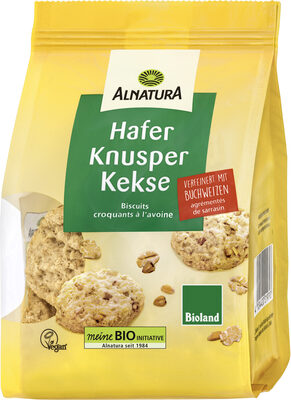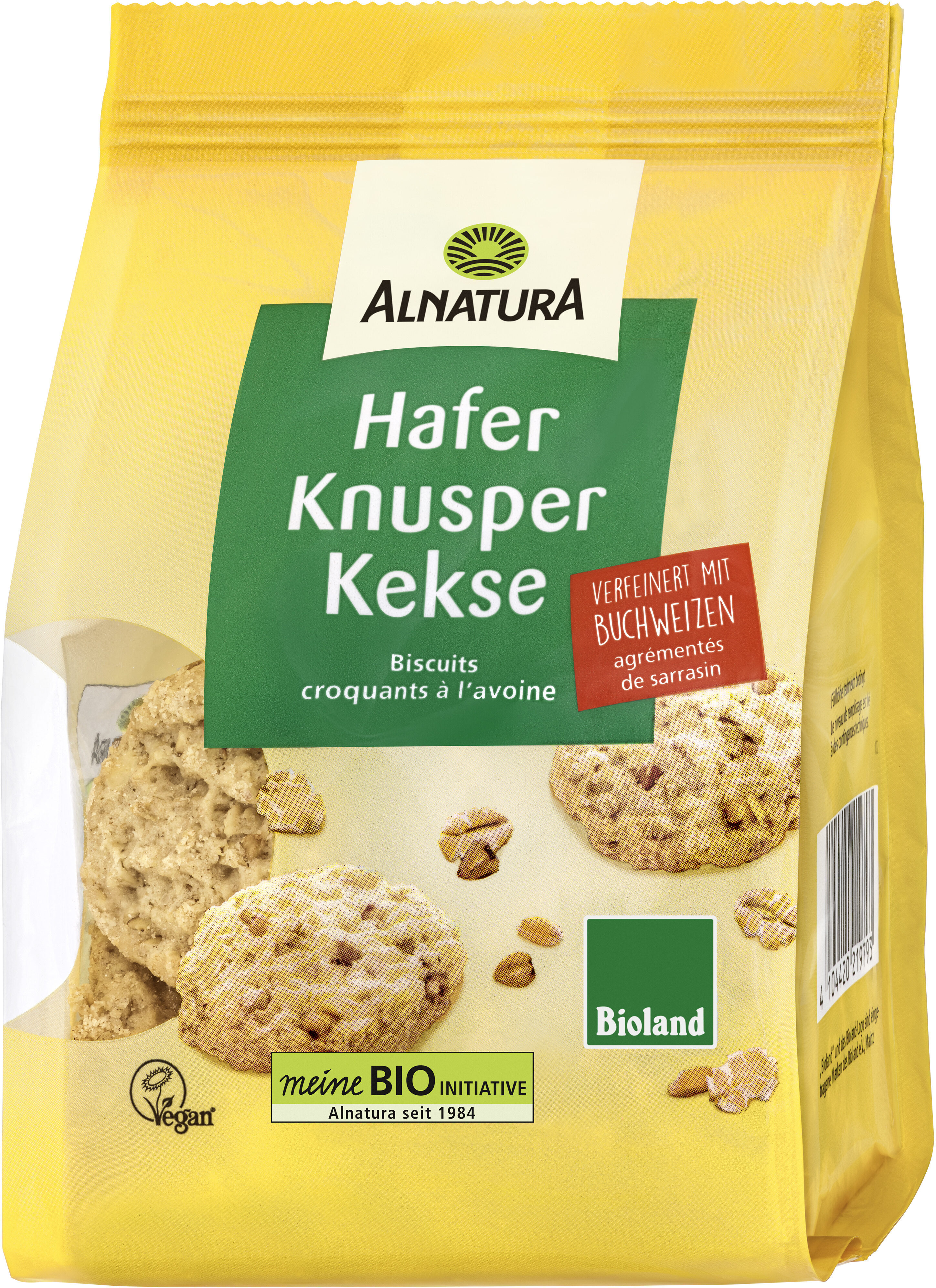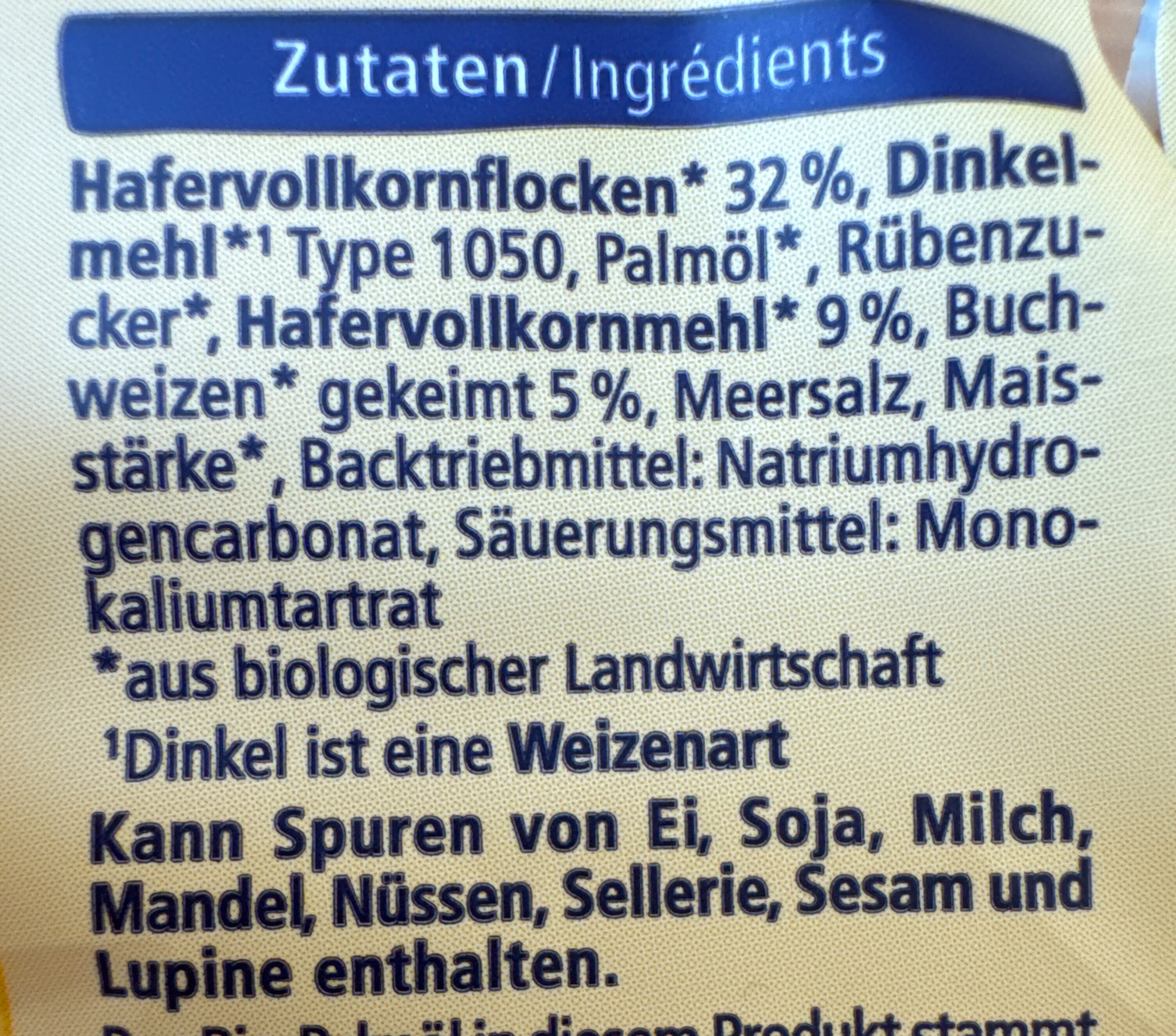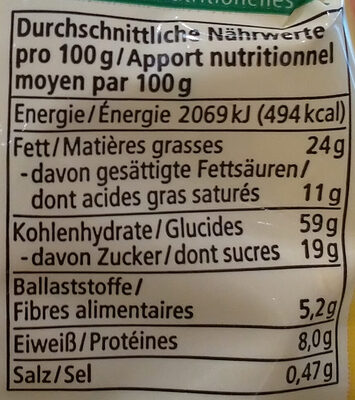Hafer Knusper Kekse - Alnatura - 150 g
This product page is not complete. You can help to complete it by editing it and adding more data from the photos we have, or by taking more photos using the app for Android or iPhone/iPad. Thank you!
×
Some of the data for this product has been provided directly by the manufacturer .
Barcode: 4104420219793 (EAN / EAN-13)
Quantity: 150 g
Brands: Alnatura, Alnatura GmbH
Categories: Snacks, Sweet snacks, Biscuits and cakes, Biscuits, Oatmeal cookies
Labels, certifications, awards:
Organic, Vegetarian, EU Organic, Non-EU Agriculture, Vegan, de:Bio 7 Initiative, EG-Öko-Verordnung, Bioland, DE-ÖKO-001, EU Agriculture, EU/non-EU Agriculture, The Vegan Society, de:Bio label German



Stores: Alnatura
Countries where sold: Germany, Switzerland, World
Matching with your preferences
Environment
Carbon footprint
Packaging
Transportation
Threatened species
Labels
Other information
Conservation conditions: Bitte trocken lagern und vor Wärme schützen.
Report a problem
Data sources
Product added on by kiliweb
Last edit of product page on by sophieka.
Product page also edited by gabrielb31, moon-rabbit, org-alnatura, prepperapp, roboto-app, teolemon, worldtest, yuka.AJpNbPyOBsAALMfxjZoXwWaUGcu9L9EHQWBdow, yuka.Wjd3Q09ia2NwZnNSa1BNRTNUYlJvdDUyMWFMM1IyU0lDUFV5SVE9PQ.











